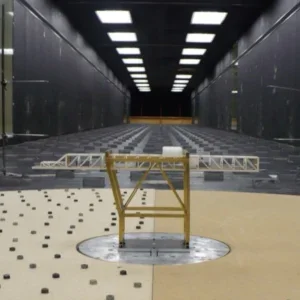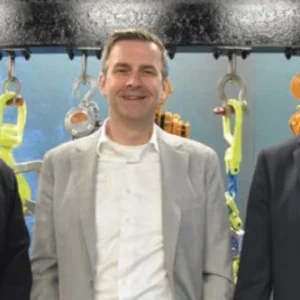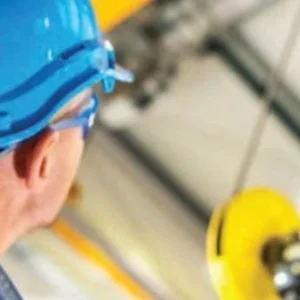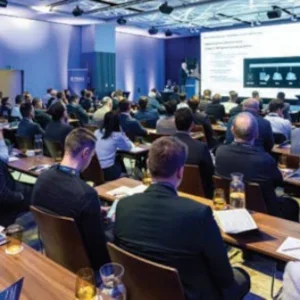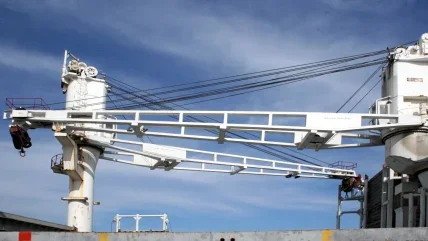
With the election of Xi JinPing, the new president of China there has been much debate about what this will mean for the business world. He inherits a country expected to bring about financial reform in the next few years, a manufacturing industry that has just returned to increasing growth, and a populace with a belief that under his stewardship, the change may be gradual but things will get better.
Crane manufacturer Cengin’s marketing director, Damon Zhou, sums this up, saying: "He has not been in the political arena for that long. I think for all his talk and exposure on television on some channels, his mind is more open than under the previous leadership. He is from a new generation, and you get a lot more education in a new generation. I think He would like to make this country more open, and this is what I expected, and I am optimistic in this.
Cengin has been for many years the OEM supplier for the giants of the Western European crane manufacturing industry, the likes of Konecranes, Demag and Abus. With the great manufacturing base that China has over its competitors it is easy to see how they have become a major supplier for such successful brands.
"We have four factories including 37 production lines. Of course they are aiming at different kinds of products. So one of the factories is strong in road and bridge construction, in that they are in charge of the launching girders production. One of them is in charge of production for overhead cranes mainly for the OEM jobs for Konecranes and Demag. And one more factory for the Bailey Bridge. Our target is high-end clients, whoever he or she is, and we select high end components for our cranes, generally speaking. So for example, for the bearings we choose SKF from Germany. Generally we select all the components that are actually the best to make sure our quality is the best." In the last years Cengin has made great advances in the technology used for their EOT cranes. They claim to have learned much from German companies, such as adding the features of their products while ensuring lightweight end result, a compacted structure that can easily operate with low headroom.
Everything the company can do to save on the cost of the equipment is usually welcome, as premium quality always comes with a comparatively higher price tag. With 80 per cent of the company’s sales coming from export markets, its no surprise that plans are often afoot to branch out into other markets. Zhou explains: "Actually I think we are doing a lot of research on the South American market, places like Columbia and Peru. I think this market is very promising because many big brands I think didn’t realise that this is a very good building land to develop.
"Basically you have a very old, or let’s say classic traditional, way to find suppliers. This is a very valuable founding for us. I have done some interviews for our potential customers, we fit quite well. So I think this is a good way." Commenting on the future direction of business in China, which also serves as an analogy for Cengin’s strategy in the business world, Zhou says: "We have to be open, and open in every aspect. We are not afraid of the competition from the global brands because the global brands, the famous brands, we can learn a lot of things to improve ourselves. The manufacturing industry has some features to create which is the design ability, the unique features, they have, so to make your own products you have to strive to make more benefit or margins. This is the key point. If you are staying in the OEM space you do not have much profit to earn." But while one Chinese company spreads its wings to grow internationally, other firms are trying hard to develop their business and move into China. Much has been made of China’s protectionist attitude to its manufacturing industry, but as the base of its strength, this attitude is hardly surprising.
As a result many companies have had to forge alliances with Chinese companies to enter the market.
Although control systems manufacturer Magnetek may not be manufacturing in the country, they have recently made a deal with a Chinese distributor that should significantly boost the company’s profile.
Having signed a distribution agreement with Beijing Asiastars Electronic Technologies Co. (AET) the terms of the agreement mean that AET will serve as the exclusive distributor of Magnetek’s radio control products to the material handling and mobile hydraulic industries in the People’s Republic of China. Founded in 2005 and headquartered in Beijing, China, AET supplies electronic technology to material handling and mobile hydraulic equipment manufacturers and end users through its network of sales offices and resellers. Magnetek and AET introduced Magnetek’s radio control products to the Chinese marketplace at Bauma China, the International Trade Fair for Construction Machinery, Building Material Machines, Construction Vehicles and Equipment, which took place at the end of November in the Shanghai New International Expo Centre. On announcing the deal, Magnetek president and CEO Peter McCormick said: "We are extremely pleased to announce this international distribution agreement with AET. We believe radio control products provide an important growth opportunity for Magnetek, and expansion of our distribution channel to reach new customers outside North America is a key strategic growth initiative. This fastgrowing market provides significant opportunity as Chinese manufacturers recognise the benefits of using radio control to improve productivity and safety." Another company already partnered with Chinese firms is Demag, a big entity in Asia.
Most recently, Demag Cranes received the order to supply eight fully automated process cranes and a warehouse management system from the Chinese company Anhui Shanying Paper Industry Co. The cranes will be used in what will be in future the largest paper-roll shipping store in the world, constructed by Shanying Paper at its headquarters in Maanshan, China.
In the store, the rolls produced by two new paper machines will be stored temporarily and prepared for shipping. The required high handling rates will be achieved by utilising mechanical roll clamps which are equipped on these cranes. These clamps can hold up to four rolls at a time. Commissioning of the store is planned for the end of 2012.
Lu Zhao Jin, Vice General Manager of Shanying Paper says: "The investment in a new paper-roll shipping store forms an essential component of our rigorous growth strategy. With Demag Cranes we are focusing on a reliable partner with first-class references for this large-scale project." Dr. Lars Brzoska, Executive Vice President of Industrial Cranes at Demag Cranes, adds: "The paper- roll shipping store operated by Shanying Paper represents a further milestone in terms of storage capacity and handling volume. With the automated stores we have used to date, we have provided our customers with considerable support in increasing handling rates over the entire process chain of paper production. In this way, we have also developed a very good position for ourselves in the growth market of the Chinese paper industry."
However Kito Corporation views Southeast Asian countries as some of the most important markets in the region, with Indonesia having the greatest potential there after the leading crane market in the region, Thailand.
President and CEO of Kito Corporation, Yoshio Kito, says: "The market of Thailand is quite unique. It’s more like the substitution of Japanese in manufacturing activities, so many Japanese manufacturing companies looking for cheap countries to manufacture, relocate their operation in Japan to countries, and Thailand is one of the biggest candidates to substitute the manufacturing activity which has been done in Japan.
The market of Thailand is the so-called ‘Detroit of Asia.
The Japanese automobile industry is also making investment in China, but that investment is focusing more on domestic demand in China.
The operation in Thailand is more for export purpose from that country to the global basis. So the majority of the investment made in Thailand from other countries, the Japanese investment I would say is 60 or 70% of investment coming into Thailand is from Japan. So that country is a very unique country."


